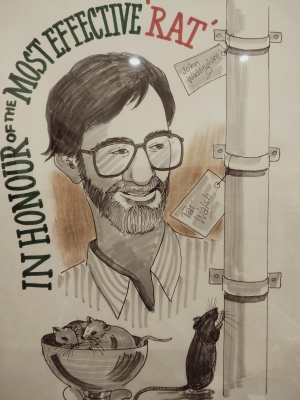
Staff at ACFOA head office dubbed John Waddingham and I ‘rats up a drainpipe’ on East Timor. It was a tribute to our tenacity but also carried a hint of mission impossible. Note that Waddingham is further up the pipe than me.
In 2022, I presented a short paper (sadly, by Zoom, not in person) on pre-independence solidarity with Timor-Leste hosted by Dr Rui Feijo and his colleagues at Lisbon’s Museu do Oriente. The paper served a couple of purposes. It was primarily an opportunity to document and share the story of the contribution of ACFOA (Australian Council for Overseas Aid, now ACFID) to Timor-Leste’s liberation (and incidentally to ACFOA’s own internal development particularly on human rights). It was also something of a dry run as I prepare to write a memoir about that experience (to be called Rat Up a Drainpipe).
Calling the paper ‘mainstreaming solidarity’ may be a slight over-statement. My intention, however, was to register that solidarity took many forms in the constellation of solidarity and that the equally critical role of organisations like ACFOA (and, by implication, Amnesty International, International Commission of Jurists, Churches, Unions, etc) should not be over-looked.
The main features of ACFOA’s work were its commitment to and advocacy of the following: self-determination, accurate information, the UN, empowerment of East Timorese, networking, Indonesian civil society, and human rights. Siding with East Timor from 1974, however, put ACFOA at odds with the Australian government which sided with Suharto. This divergence also defined the period and shaped ACFOA’s modus operandi until the demise of Suharto slowly allowed government and civil society to write on the same page.
Haha. If I was higher up the drainpipe it was only to get out of Pat’s way as he rushed upwards to becoming the ‘most effective’ rat.